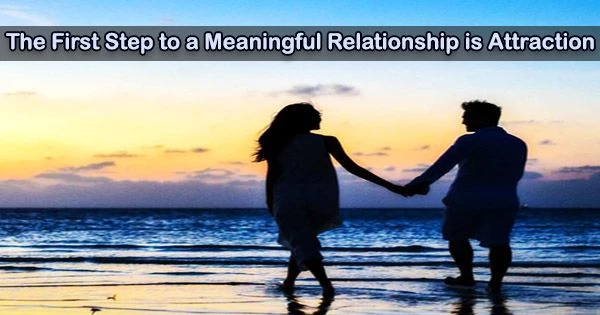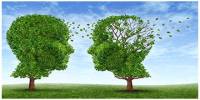Researchers in the fields of psychology, sociology, and anthropology have long sought to understand what makes one individual attracted to another. Humans are social beings. For social contact, people form groups, and lovers couple off for romantic relationships and reproduction.
People used to live and hunt in groups in the past, which helped to assure the short-term survival of the species. To secure the long-term survival of the species, people reproduce.
According to evolutionary psychology, strength and hunting prowess were the key characteristics of males. To protect their own survival and the survival of their progeny, women instinctively chose mates who exhibited these qualities. Age and the lengthy human gestation period put a cap on the female’s ability to reproduce. The quantity of women who will allow him to mate, on the other hand, determines the male’s ability to procreate.
Due to these evolutionary constraints, women tend to be drawn to men who exhibit strength and prowess, qualities that suggest security. Males, on the other hand, are drawn to physical beauty, which is a sign of good reproductive health.
Today, a man’s social standing, his capacity for earning money, and his ability to create a safe environment for a woman and her children are more important indicators of a man’s physical security than his prowess as a hunter.
The following selected principles are reliable predictors of attraction. Of course, as with all predictors of human behavior, there are exceptions to the rule.
Personality and Attraction
Extroverts are perceived as being social and self-assured, which makes them seem more appealing than introverts. Knowing a person’s tendency toward extroversion or introversion before starting any kind of relationship can be extremely insightful.
If you are an extrovert and the person you want to meet is an introvert, expect to see some inherent differences in how you perceive the world. Being among other people gives extroverts energy, and they look for stimulation in their surroundings. Extroverts frequently speak impulsively, without hesitation, and with assurance by using the approach of trial and error.
On the other hand, introverts need alone time to refuel because they use energy when they interact with others. Individuals that are introverted rarely communicate without first considering things through. Before making judgments, introverts thoroughly consider their options.
Extroverts have a wide range of relationships, yet they frequently have brief ones. Conversely, although introverts have fewer relationships overall, they typically have deeper ones. When dating an extrovert, an introvert looks for deeper connections, which an extrovert may be less inclined to make. This unwillingness to immediately commit to something more shows our differences, which lessens our attraction to one another.
Rarely do people exhibit entirely extroverted or entirely introverted characteristics. Personality traits slide along a continuum. Many people exhibit both extroverted and introverted characteristics.
Additionally, introverts who are comfortable with their surroundings often display behaviors associated with extroversion. Likewise, extroverts can display introverted characteristics.
Self-Esteem and Attraction
People like to associate with individuals who display high levels of self-confidence. High self-confidence individuals typically don’t mind being the focus of attention. They might also be at ease with self-disclosure, which is a prerequisite for developing strong interpersonal bonds.
Conversely, people with low self-esteem tend to be reluctant to disclose personal information. An anti-criticism and anti-rejection defense mechanism is the incapacity to disclose oneself.
Self-disclosure is the route to deeper interpersonal connections, but persons with low self-esteem frequently resist taking it. People with poor self-esteem are prevented from obtaining the deep personal relationship they most desire because of their fear of being mistreated, betrayed, and rejected.
Facebook Use and Attraction
Similarity plays a critical role in the development of relationships on Facebook. According to research, Facebook users are drawn to those who hold similar views and opinions. Facebook users are perceived as more beautiful as they get closer to 300 friends, but after they reach 300 friends, the effect on social attractiveness tends to fade.
People who spend a lot of time on Facebook are frequently seen as being more introverted and having lower self-esteem. Introverts disclose more information on social networks than they do in face-to-face encounters. The Facebook format allows introverts sufficient time to formulate meaningful responses. Introverts naturally reveal more information than they would in personal talks because there isn’t the strain of a face-to-face interaction.
Additionally, introverts may find it challenging to start discussions, particularly with strangers. Social networks remove this additional societal pressure. Facebook may be a good setting for people with low self-esteem since they want to be accepted and loved by others. They can express themselves on social media platforms without being as directly exposed to criticism.
According to the scant study on relationship development on social networks, it seems that online relationships work on the same psychological principles of attraction that face-to-face interactions do. In fact, social networks offer a useful substitute for face-to-face interactions for those who find it uncomfortable to start a conversation there.
















